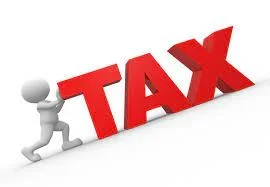
Nigeria's Finance Minister, Wale Edun, confirmed the removal of fuel and foreign exchange subsidies, citing financial strain on the economy. The government plans to address unemployment through a new housing finance initiative, while inflation soars to 32.70%. Critics highlight the adverse effects of these policies on citizens.
In a significant address delivered in Abuja, Nigeria's Finance Minister, Wale Edun, confirmed the government's decision to eliminate fuel and foreign exchange (FX) subsidies, emphasizing the need for urgent economic reforms. Speaking at the presentation of the World Bank's Nigeria Development Update, Edun stated, “Fuel and FX subsidies are extinguished,” highlighting the substantial financial burden these policies had placed on the nation's economy.
The finance chief revealed that these subsidies had cost the country over N10 trillion, a staggering figure that accounts for approximately five percent of Nigeria’s Gross Domestic Product (GDP). This move is seen as a crucial step toward stabilizing the economy, which has faced ongoing challenges.
In response to rising unemployment rates, Edun also announced a new government initiative focused on housing finance, designed to stimulate construction activities and generate jobs. “The government expects this approach to boost construction activities and generate significant job creation,” he stated, underscoring the importance of mortgage and housing financing in revitalizing the economy.
Meanwhile, Central Bank of Nigeria (CBN) Governor Olayemi Cardoso defended the recent half-percent interest rate hike, which has brought the rate to 26.75 percent. He asserted that the bank's policies are based on empirical data, aimed at addressing the ongoing Naira crisis and inflation. “Policies and decisions will be based on evidence and data going forward,” Cardoso noted.
However, not everyone agrees with the government’s approach. Bala Mohammed, the Governor of Bauchi State, criticized the federal policies, claiming they have exacerbated the hardships faced by Nigerians. “These policies are not working,” he stated, reflecting widespread concerns about the current economic landscape.
Since the government announced the removal of fuel and FX subsidies in June 2023, fuel prices have skyrocketed, now reaching N1,030 per liter, up from N195 per liter in May of the previous year. The FX exchange rate has also surged, currently standing at N1,660.49 per dollar, compared to N461 per dollar earlier. As a result, Nigeria’s inflation rate surged to 32.70 percent in September, up from 20.41 percent just a few months prior, underscoring the urgency of the situation.
With the government's new strategies in place, the hope is to address these pressing issues and bring relief to the millions of Nigerians feeling the impact of these economic reforms.




